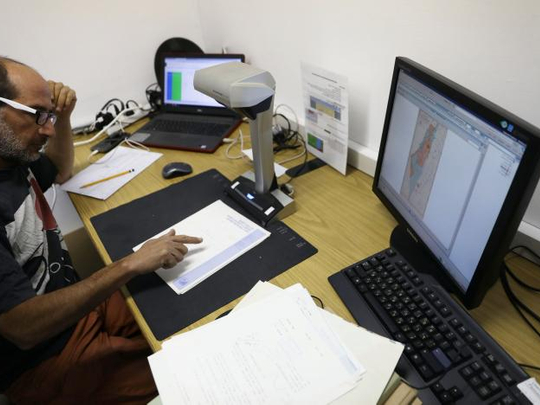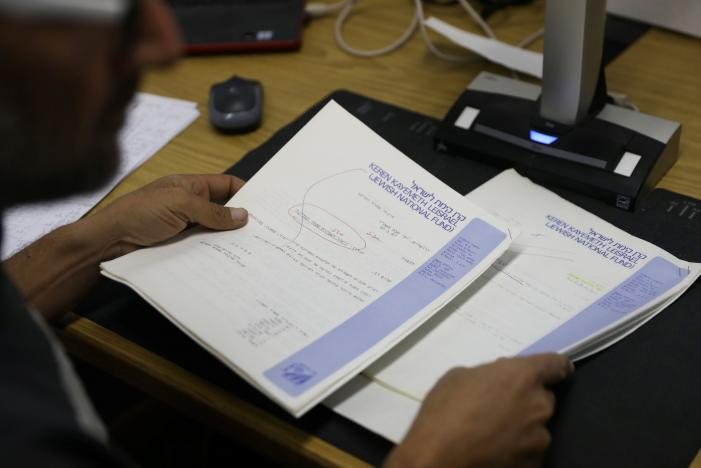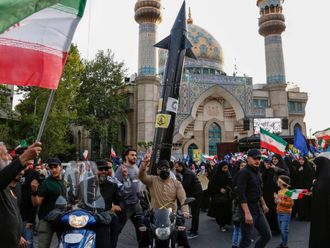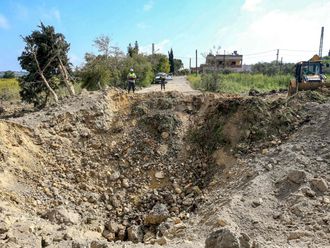
Occupied Jerusalem: Within days of capturing and occupying East Jerusalem and the West Bank in the 1967 Middle East war, Israel was examining options about their future ranging from Jewish colony-building to the creation of a Palestinian state.
As the 50th anniversary of the outbreak of the war nears on June 5, recently unearthed documents detailing the post-war legal and diplomatic debate show.
How many of the policies related to current day Israeli government activities in the occupied territories have roots going back to the very first year of occupation.
“Policies that were envisaged very early on, 1967 or 1968, serve government policies to this day,” Lior Yavne, founder and director of Akevot, an Israeli NGO who pushed for the release of the records.
THORNIEST QUESTIONS
In six days of war, Israel’s army occupied 5,900 square km of the West Bank, the walled Old City of Jerusalem and more than two dozen Palestinian villages on the city’s eastern flank.
On other fronts, it conquered the Golan Heights from Syria, Sinai from Egypt and the Gaza Strip.
But for the Israeli prime minister’s office, the foreign ministry and assorted legal advisers, the thorniest questions surrounded how to handle the unexpected seizure and occupation of the West Bank and East Jerusalem — and the 660,000 Palestinians living there.
READ MORE:
Israel to push 140,000 Palestinians out of Jerusalem boundaries
Recently released 1967 war archives expose Israeli arrogance
How to reflect on a semi-centennial
A little over a month after the war ended on June 10, 1967, senior foreign ministry officials had drafted a set of seven possibilities of what to do with the West Bank and Gaza.
They considered everything from establishing an independent, demilitarised Palestinian state with its capital as close as possible to Occupied Jerusalem, to annexing the entire area to Israel or handing most of it over to Jordan.
The authors explained the need to move rapidly because “internationally, the impression that Israel maintains colonial rule over these occupied territories may arise in the interim”.
While the document analyses in detail the idea of an independent Palestinian state, it presents most positively the case for annexation, while also making clear its “inherent dangers”.
Option four, listed as “the graduated solution”, is the one perhaps closest to what exists to this day: a plan to establish a Palestinian state only once there is a peace agreement between Israel and Arab nations.
Perhaps the trickiest and most legally nuanced discussions were around Israel’s responsibilities under international law, and whether it could build colonies.
Israeli colonies on occupied Palestinian land are illegal.
NO INTERNATIONAL RECOGNITION
After the 1967 war, Israel occupied East Jerusalem and considers all of Jerusalem as its “indivisible and eternal capital”, a status that has not won international recognition.
Palestinians want East Jerusalem as the capital of a future Palestine.
Nabil Abu Rdainah, a spokesman for Palestinian President Mahmoud Abbas, said Israel has consistently violated UN resolutions and the Fourth Geneva Convention in its actions in occupied territory, particularly in Occupied Jerusalem.
“All these measures ... can’t change the fact that Jerusalem is an occupied city, just like the rest of Palestinian lands,” he said.
Theodor Meron, one of the world’s leading jurists who was then legal adviser to the foreign ministry, wrote several memos in late 1967 and early 1968 laying out his position on colonies.
In a covering letter to one secret memo sent to the prime minister’s political secretary, Meron said: “My conclusion is that civilian colonisation in the administered territories contravenes explicit provisions of the Fourth Geneva Convention”.
Meron, who now lives in the United States, set his arguments out over several pages, but they boiled down to the fact that Israel was a signatory to the Geneva Convention which prohibits transferring citizens of an occupying state onto occupied land.
“...any legal arguments that we shall try to find will not counteract the heavy international pressure that will be exerted upon us even by friendly countries which will base themselves on the Fourth Geneva Convention,” he wrote.
The only way he could see colonies being legally justified — and even then he made clear he didn’t favour the argument — was if they were in temporary camps and “carried out by military and not civilian entities”.
While in the early years colonies were militaristic and often temporary, the enterprise now has full government backing, houses some 350,000 civilians in the West Bank and has all the hallmarks of permanence.
Meron declined to respond to specific questions from Reuters.
But in an article this month in the American Journal of International Law, he expressed concern about “the continued march toward an inexorable demographic change in the West Bank” and the appointment by US President Donald Trump’s administration of an ambassador to Israel who has raised funds for colonies.
WHY THE FOURTH GENEVA CONVENTION IS KEY
There is, Meron wrote in the journal, a growing perception in the international community that “individual Palestinians’ human rights, as well as their rights under the Fourth Geneva Convention, are being violated.”
Immediately after the war, almost no element of Israel’s land seizure went unexamined, whether by the military, the prime minister’s office, the foreign ministry, naming committees or religious authorities.
In a memo on June 22, 1967, Michael Comay, political adviser to the foreign ministry, wrote to the ministry’s deputy director-general saying they needed to be careful about using phrases like “occupied territories” or “occupying power” because they supported the International Committee of the Red Cross’s view that the local population should have rights under the Fourth Geneva Convention.
“There are two alternatives: Using the term TERRITORIES OF THE MILITARY GOVERNMENT or TERRITORIES UNDER ISRAEL CONTROL,” he wrote.
“Externally, I prefer the second option.”
Even now, the government avoids talking about occupation, instead suggesting that the West Bank is “disputed territory”.














